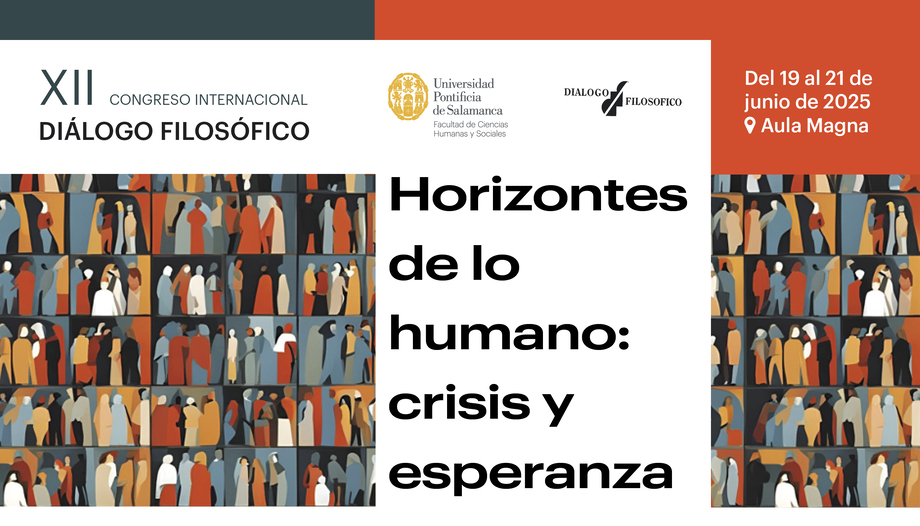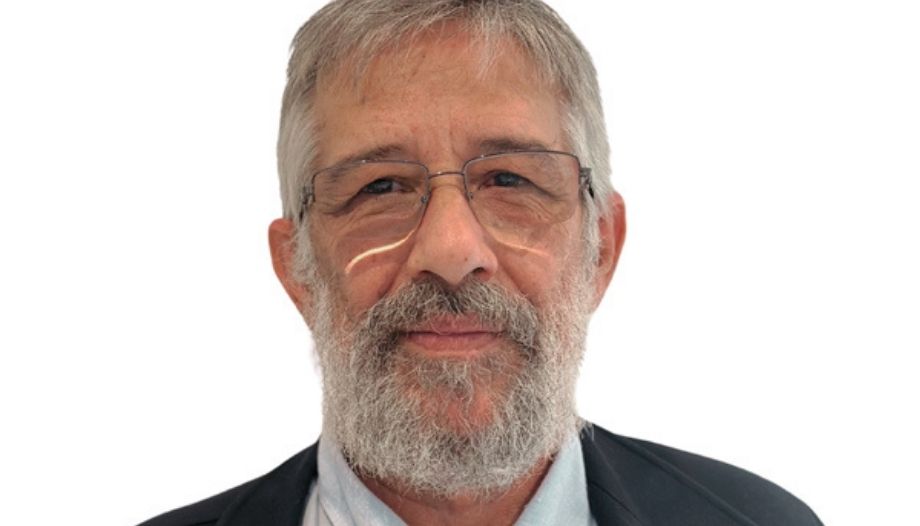On the 40th anniversary of 'Philosophical DialogueThe journal directed by Professor Antonio Sánchez Orantos, cmf, will be attended by a large group of speakers, philosophers and academics from different universities. They will analyze from June 19 to 21 in the Pontifical University of Salamanca (UPSA), important human challenges.
Antonio Sánchez Orantos (Madrid, 1957), a Claretian missionary, assumed the responsibility for the direction of Philosophical Dialogue in 2023, replacing the previous director, José Luis Caballero Bono, also a Claretian.
In addition to other professional occupations, Sanchez Orantos has been a professor for 22 years of Anthropology, Metaphysics and Ancient History at the Comillas Pontifical Universitywho heads the Society of Jesus and is now in retirement.
But he is still very busy. At present he continues to teach Spiritual Theology at the Claretian Theological Institute (affiliated to the Pontifical University of Salamanca), in addition to directing the magazine 'Diálogo Filosófico'. Today we talk with the philosopher about some current issues.
Professor, two preliminary brushstrokes. Where you were born and studied. You are a philosopher and a Claretian.
- I was born in Madrid in 1957, on July 17. I entered the Congregation of the Missionary Sons of the Heart of Mary (claretian missionaries) in 1974, and I made my first profession of vows in 1975.
I was consecrated a priest by Bishop Vicente Enrique y Tarancon on April 24, 1983. I have a bachelor's degree in Theology from the Claretian Theological Center of Colmenar Viejo (affiliated to Comillas University). I have a degree in philosophy from Comillas University. Dr. in Philosophy from the same university. Degree in Theology from the Pontifical Athenaeum San Anselmo of Rome, and master's degree in philosophy and mysticism from the same Athenaeum in Rome.
Tell me about some of the topics that you have dealt with in the magazine in recent times. You are now celebrating 40 years of 'Diálogo Filosófico'.
- The journal, of high philosophical dissemination, has sought to critically confront the most pressing problems of our culture, reserving an annual issue (the journal is published every four months) to update the proposals of the most representative authors of the philosophical tradition.
I mention only the last ones: Kant (No. 119), Maritain (in press, No. 122), homage to Benedict XVI (No. 117).
Throughout the forty years of its existence, many others have been treated: Husserl, Heidegger, Zubiri, Rorty, Habermas, Simone Weil, the Frankfurt School (you can see here).
With respect to the topics covered, they are five reflective fields: ethics and politics, epistemology and neurosciences, problems of foundation and meaning of human life (anthropology/metaphysics), human transcendence and theodicy (problem of God), critical reflection on cultural modes/modes.
Recent issues have dealt with: Digital Humanities (115), Poverty (116), Thinking uncertainty (118), Moral: a foundation (120).
I suppose that the collaboration with the Pontifical University of Salamanca goes back a long way.
- The founder of the journal, Pr. Dr. Ildefonso Murillo Murillo, professor emeritus and former dean of the Faculty of Philosophy UPSA, and former director of the Ibero-American Institute of Philosophy (UPSA), marked from the beginning and with clarity the objectives of the journal.
"The desire to contribute to the investigation of philosophical truth at the height of our time. (Because) many philosophers seemed to be motivated by goals other than truth.
"The concern to offer a radical and hopeful orientation to human life."
Maybe there was some underlying idea ...
- The Spain of the eighties faced great challenges: times of crisis, of change, of hope. The stagnation of philosophy in an outdated scholasticism provoked a reaction towards positivist, nihilist, structuralist, postmodern or postmetaphysical proposals.
In this cultural environment, the "great dream" of creating an open space for dialogue to critically rethink these reactions and to provoke the presence of a philosophical reflection that would clearly present the wisdom contained in Christian humanism. This year we celebrate forty years of presence in fidelity to this task.
You are now addressing, at UPSA, crisis and hope.
- Sadness is taking possession of human life. Sadness that shatters all hope for a better future. And when hope is shattered, demoralization permeates all dimensions of social life. And at the heart of this cultural crisis, the disruptive irruption of AI threatens the identity of the human being.
This is why, more than ever, we need knowledge that invites human beings to listen to the desires of their hearts (reflective silence as opposed to superficial verbiage) and offers hopeful and realistic projects of moral life: the future of our societies is at stake.
Along these lines, I don't know if philosophy, and the humanities in general, are too often considered as a certain "useless knowledge", not very pragmatic. What would you say?
- The pragmatic dimensions of human life are sufficiently addressed and, therefore, non-pragmatic knowledge, which illuminates human life, is more urgent than ever.
Apparently useless knowledge, but knowledge that is being sought by human beings to give meaning to their lives.
Offering spaces for dialogue for this knowledge is the commitment of the journal and the fundamental objective of our Congress. Because only in dialogue with those who are different, breaking the temptation of social polarization, can we find paths of justice and peace for the people of today.
We conclude our conversation. The attractions of the congress are numerous, and the program will present important speakers. At the inauguration will be Monsignor Luis Argüello, the Claretian Cardinal Aquilino Bocos Merino, the Grand Chancellor, Bishop José Luis Retana, and the Rector of the UPSA, Santiago García-Jalón. And also, as is obvious, Professor Ildefonso Murillo, cmf, founder of the magazine, and the director, Antonio Sánchez Orantos.









